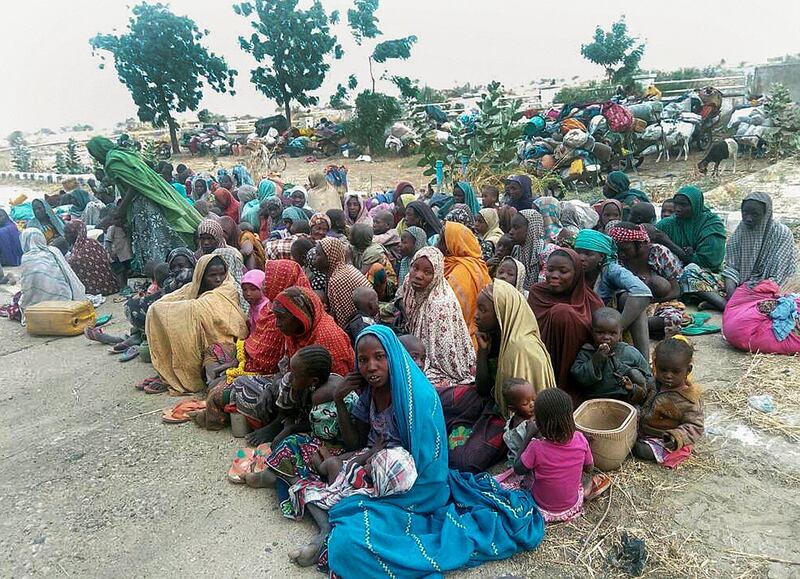There are plenty of reasons to be worried about 2018 but in the best spirit of a New Year and a new beginning, let us start with optimism. For all our predictable troubles – North Korean missiles, conflict, hunger, poverty, migration, climate change and the most eccentric US president and White House in living memory – the world begins 2018 statistically healthier and wealthier than in all human history. Scientific breakthroughs will bring about new cures for diseases that have plagued mankind for centuries. New technologies will amaze us. Where once famine was regarded as a natural disaster, in the 21st century it is mostly man-made. That, too, is good news. Man-made problems can – at least in theory – be fixed by man-made solutions.
So let us consider with some optimism a man-made plague. It brings misery to millions and it will continue in 2018 but it needs to put into perspective. That plague is terrorism. Looking for anything optimistic to say about terror might seem idiotic. As you read this some misguided terrorist group somewhere, from Boko Haram in Nigeria to separatists in the Philippines, defeated ISIL failures in the Middle East or their soulmates in Europe and the US, is planning its next atrocity. The existence of such terrorist groups scares us all and has changed the way we live. Once, there was a happier age of air travel during which passengers checked their luggage and walked onto planes without body scanners, without taking off items of clothing and shoes, without abandoning water bottles. These anti-terrorist inconveniences are now simply normal and unremarkable. In London, New York, Paris and elsewhere, terrorism has even changed how we walk, cycle and drive. There are metal barriers on bridges and around places where a terrorist might use a truck as a weapon to smash into bicycle lanes or to attack pedestrians going to work.
Nevertheless, hard facts should rescue us from fear. The TV celebrity Kim Kardashian tweeted recently that more Americans are killed every year on average by lawnmowers (69) than by foreign-born extremists (two). This statistic drew praise from Britain's Royal Statistical Society because – as all good statistics do – it provides a sense of perspective and context rather than mere scaremongering. The historian Yuval Noah Harari made a wider claim in his latest book Homo Deus. He pointed out that in 2010, terrorism killed 7,697 people across the world, mostly in poor or developing countries, while three million died as a result of obesity.
“For the average American or European,” Harari concluded, “Coca-Cola poses a far deadlier threat than Al Qaeda.”
__________________________
Read more from Opinion
[ Damien McElroy: Iranian leaders are out of step and seem incapable of regeneration ]
__________________________
Of course, governments need to protect their citizens from violent and evil people but hyping up the terrorist threat is counter-productive. Russia, the US, much of Europe, the Middle East, Pakistan, Afghanistan, India, China, Turkey and many other countries witnessed terrorist activity last year. We must prepare for more attacks across the world this year. Even so, most people and governments in most regions are overwhelmingly safe and secure. So in 2018, let us take a deep breath and try to think clearly. Beyond the political rhetoric, this is not a war. Terrorists are not soldiers. They are deluded, armed criminals, often misfits, drug-takers and losers, failures in every field of human endeavour, except being able to murder unarmed, unsuspecting and innocent people.
Terrorists must be captured or killed, their ideas defeated, their dreams exposed as pointless ideologies, their political visions shown to be empty. They remain a serious irritant - but they are not an existential threat. Terrorism itself is a kind of violent theatre. The terrorist kills some unfortunate victims with one aim: the hope that hundreds of millions of us will be – obviously – terrorised. The Palestinian journalist Abdel Bari Atwan met Osama bin Laden in his cave in Afghanistan before the attacks of 9/11 and later wrote a book about Al Qaeda. He told me the organisation, especially Bin Laden's sidekick Ayman Al Zawahiri, shrewdly understood how western democracies work. Their biggest hope was to provoke the Pentagon and US media to offer them what Britain's former prime minister Margaret Thatcher once called "the oxygen of publicity" to boost Al Qaeda's prestige among potential followers. In the short term, they succeeded in outraging and frightening us all. But Bin Laden ran his organisation from a cave, not a palace. Terrorist attackers in developed countries often use knives and trucks because other weapons are difficult to acquire.
There will be plenty of time to reflect upon the bad news happening in 2018. Defeating terrorism would be some of the best news of all. The secret will be for all of us, not just governments but all citizens, to keep our nerve. Whatever the provocation, we must refuse to be terrorised. We must not only oppose evil ideologies but also remember to describe them accurately for what they are. And we must always remember that terrorists choose violence not because they are strong but because they are weak.





